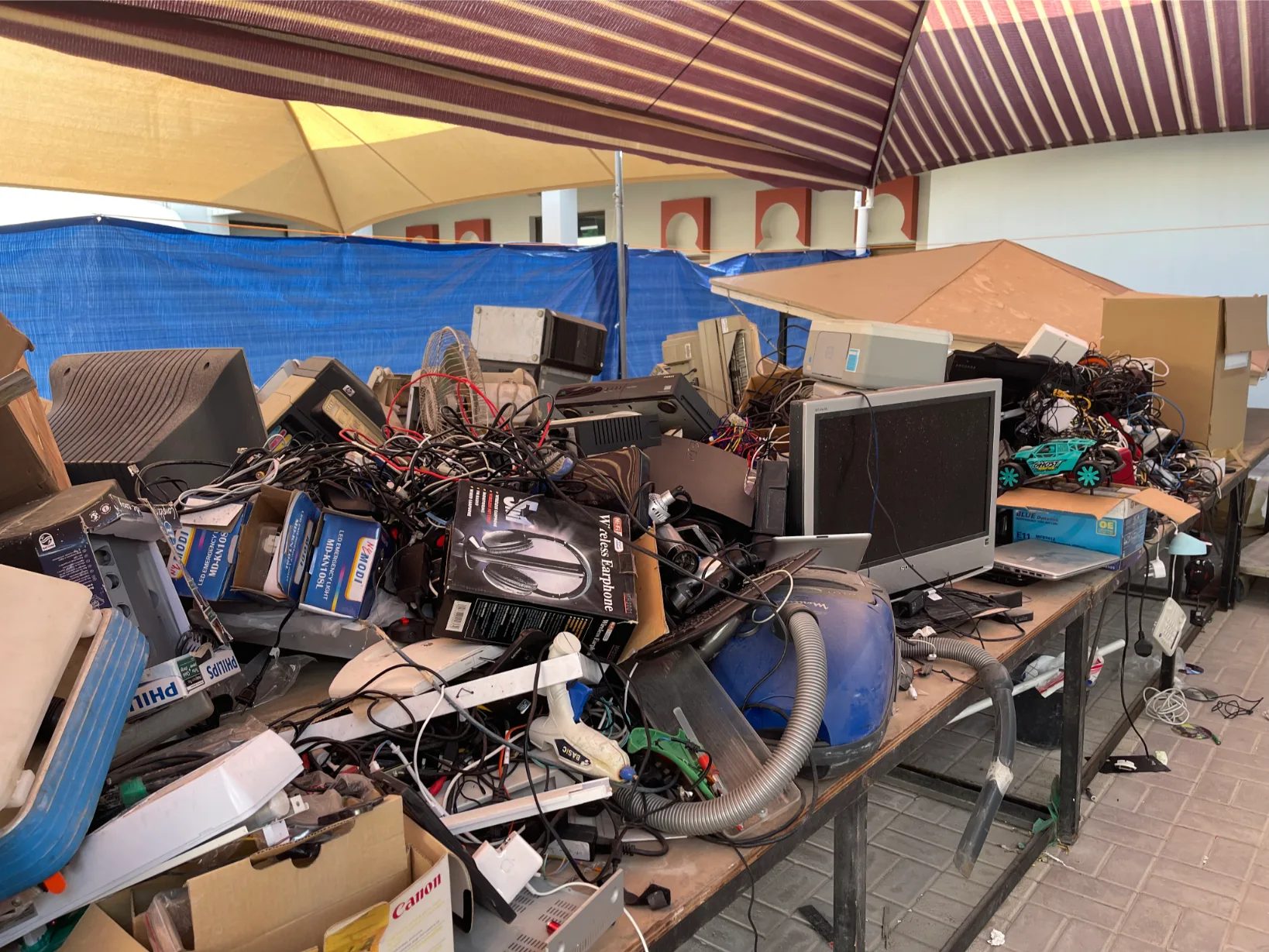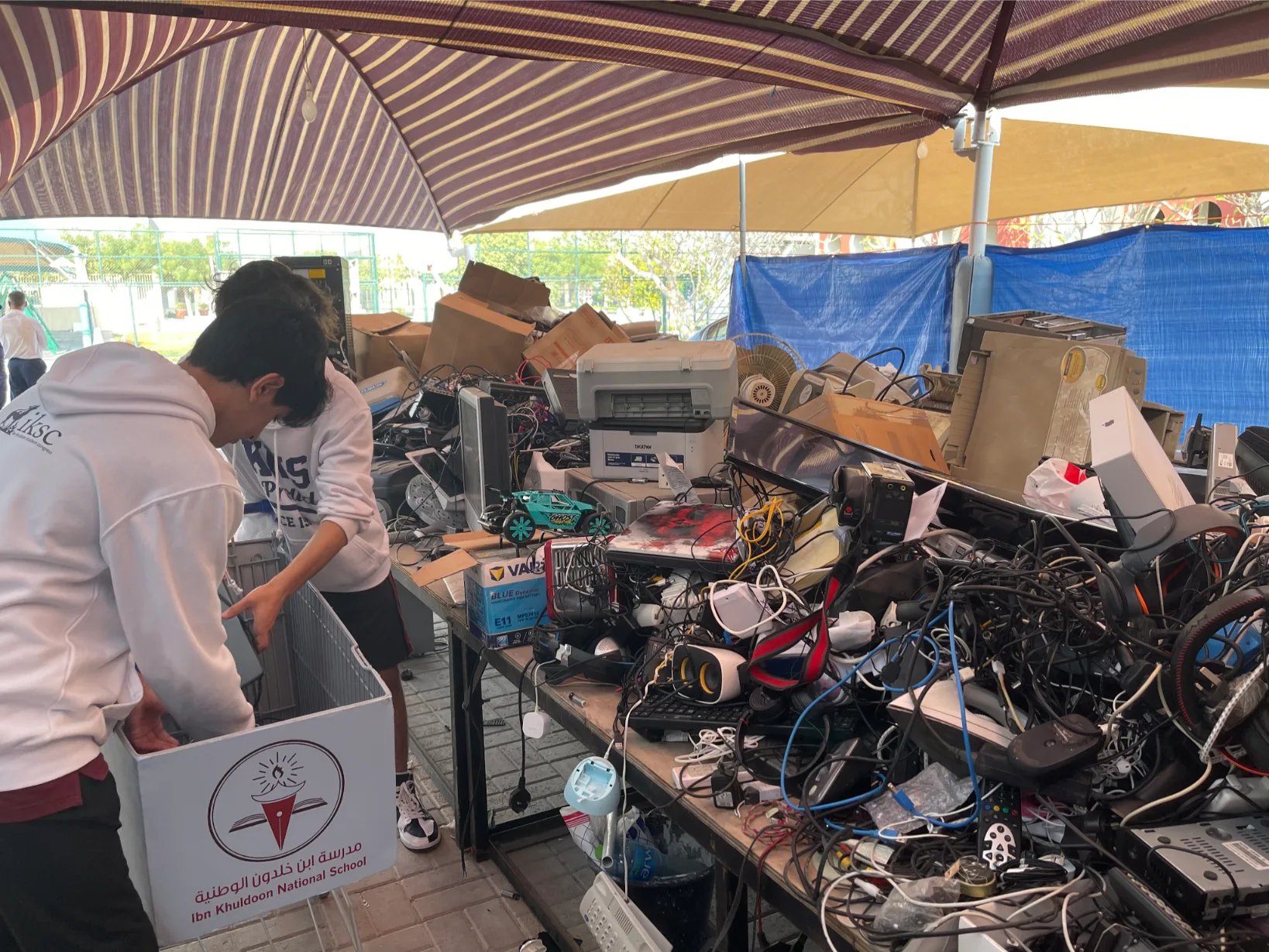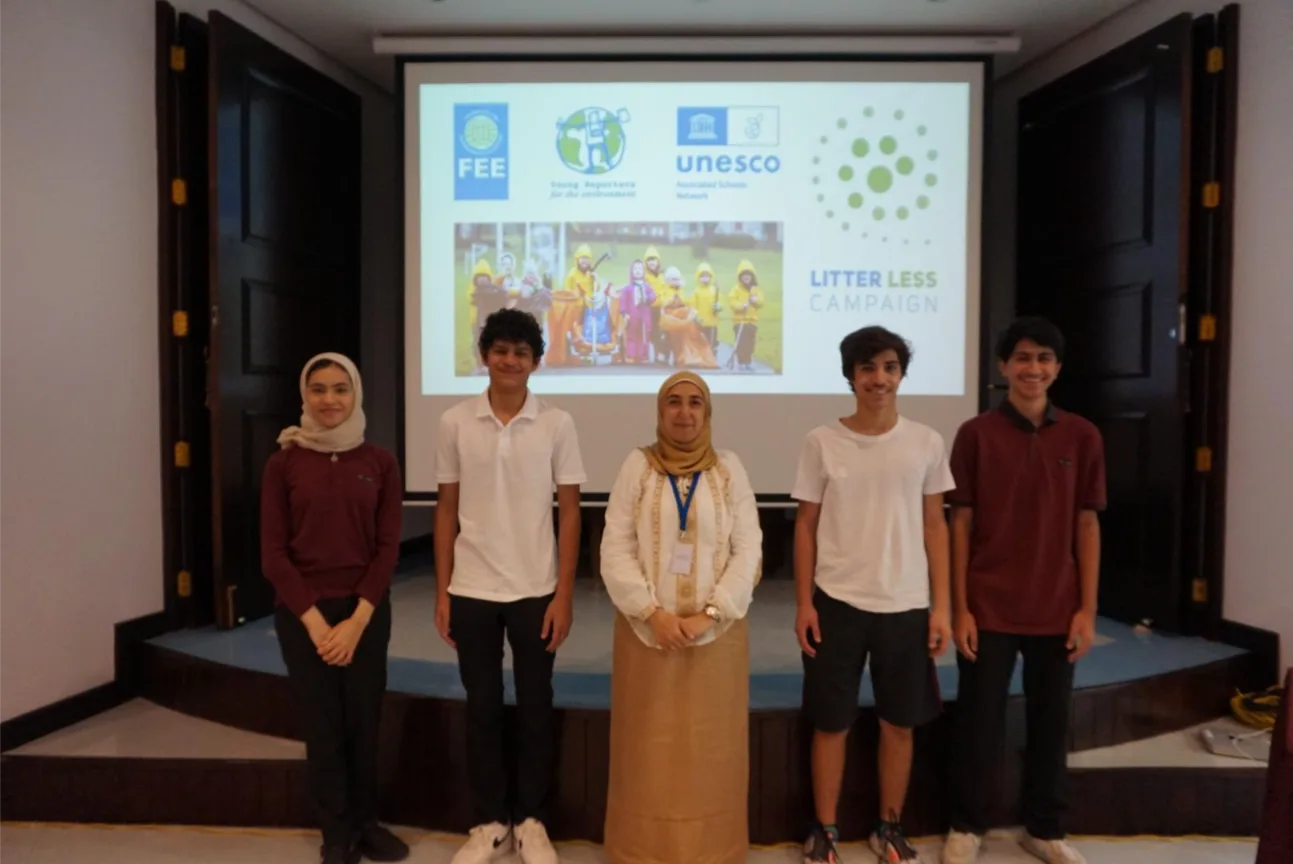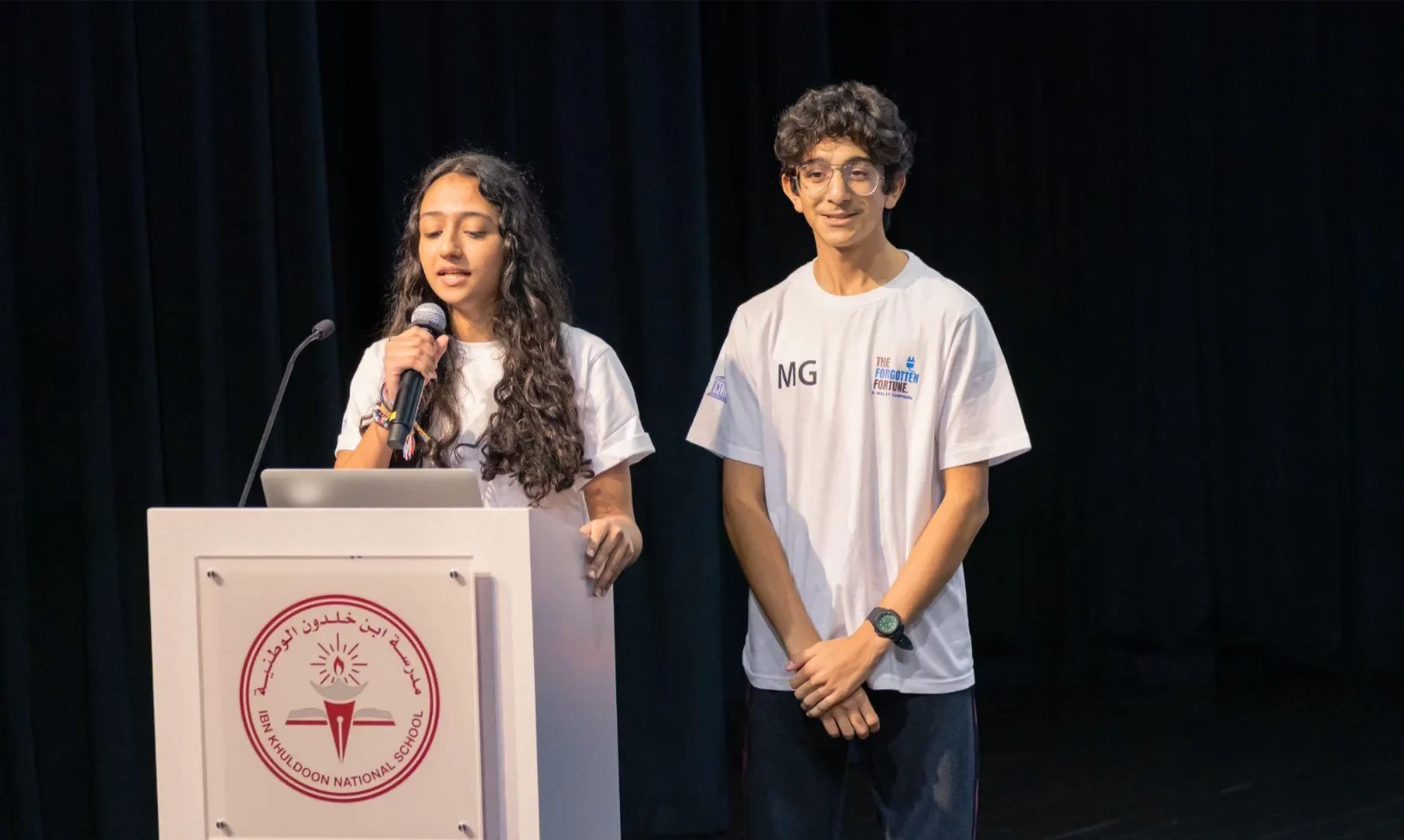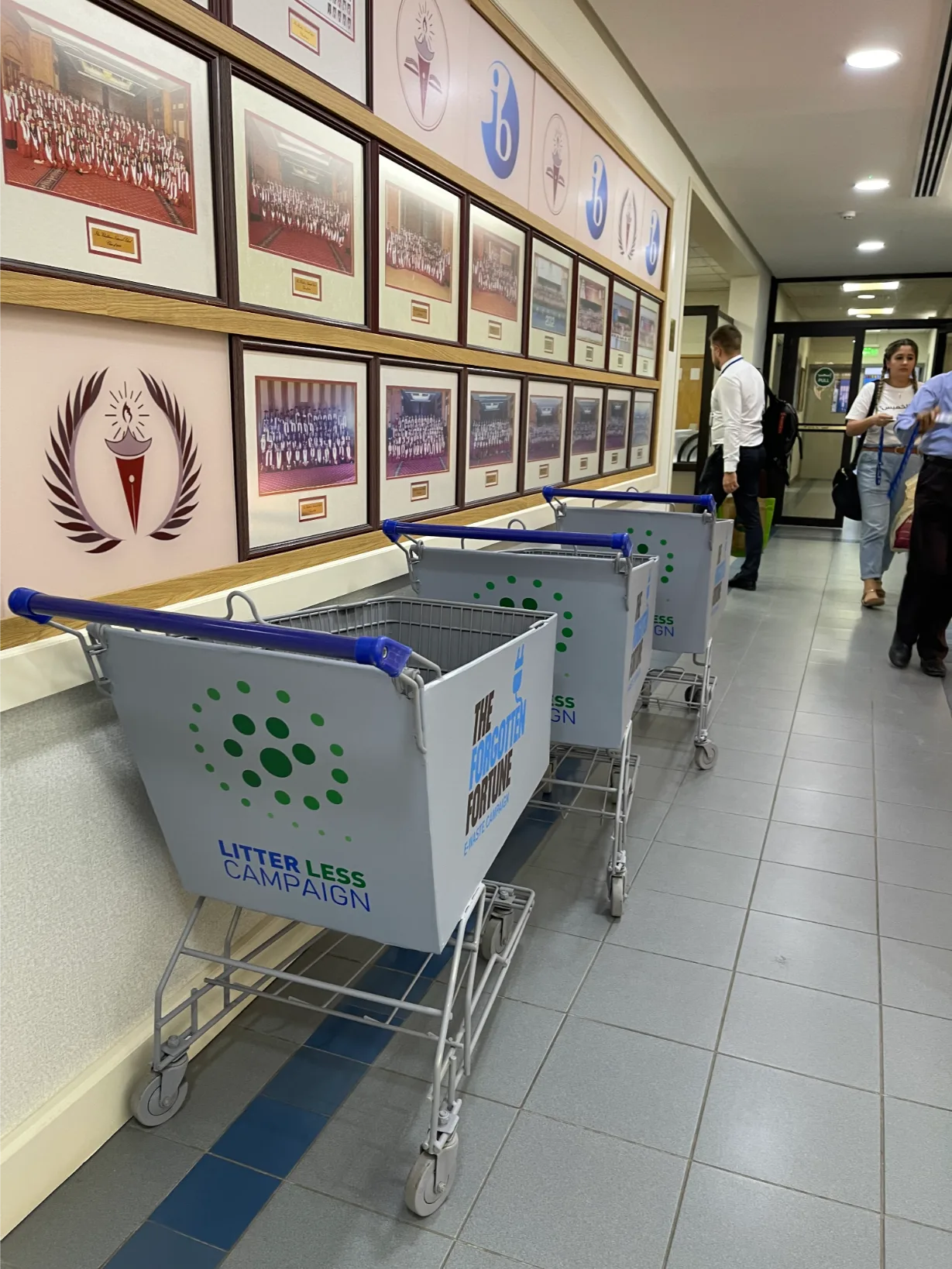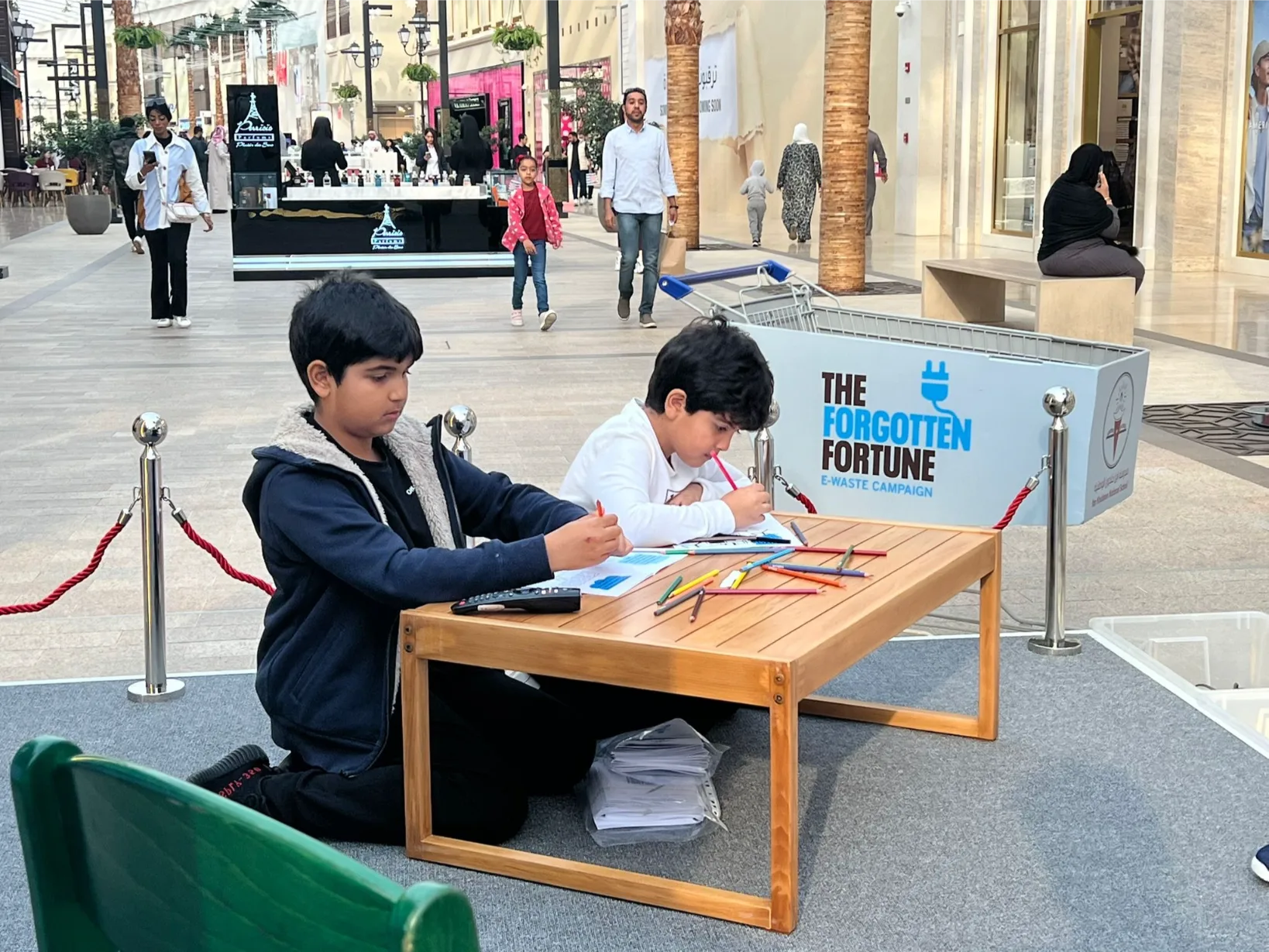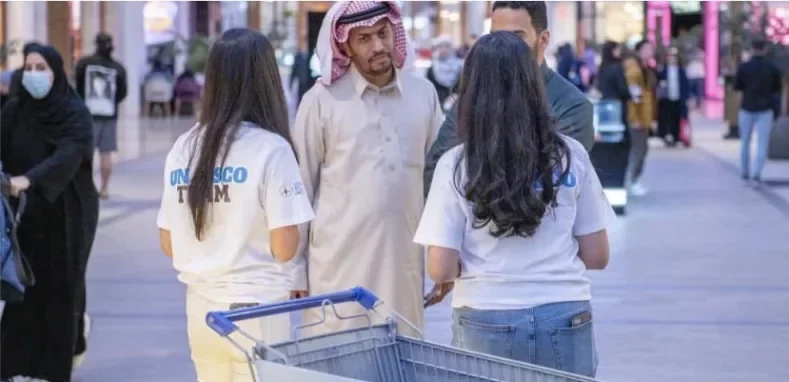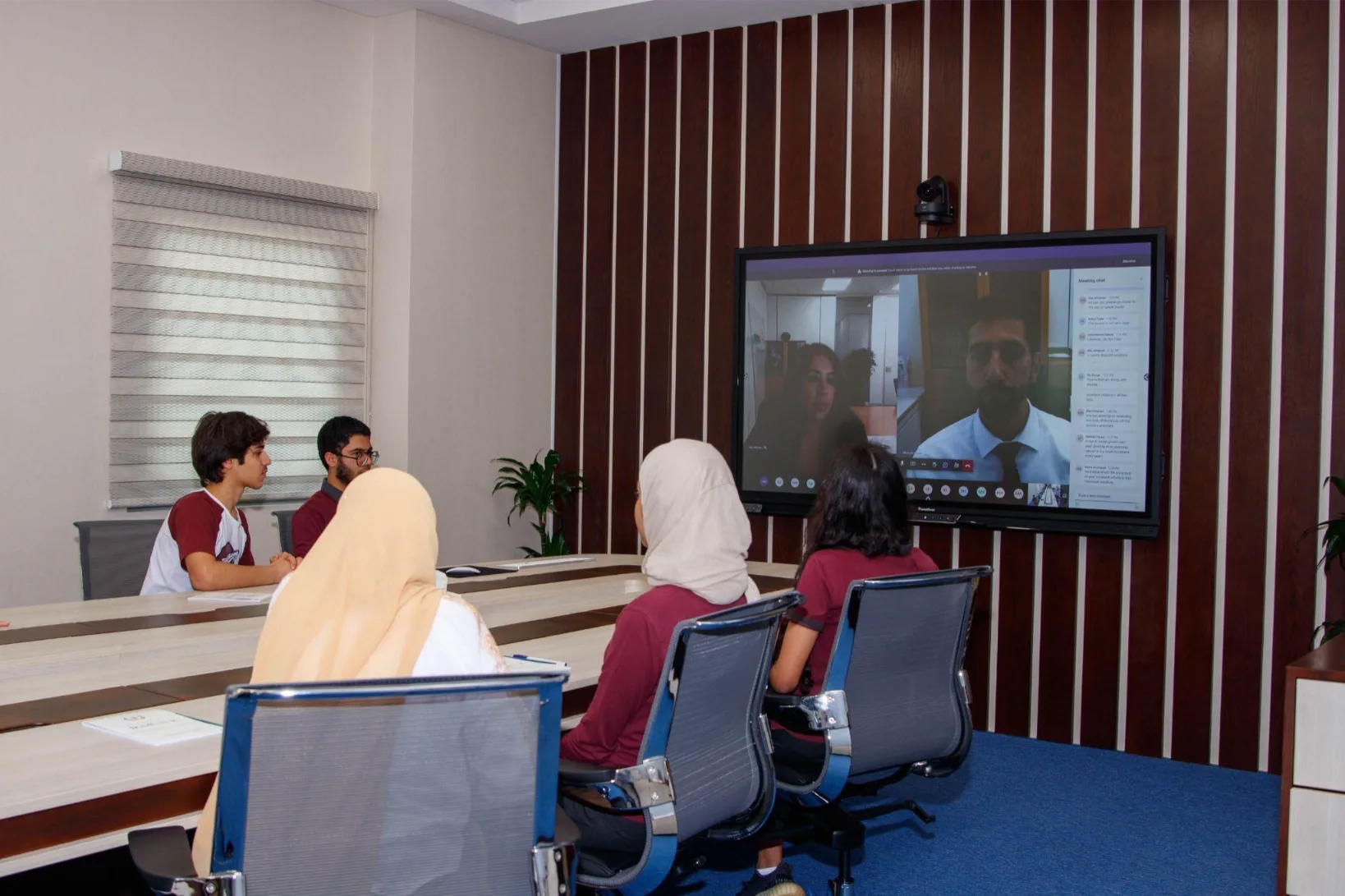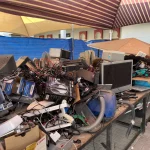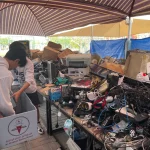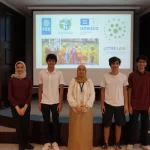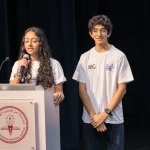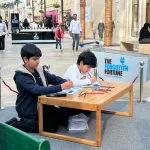Teacher: Abdulla Al Akram, Huda Labib
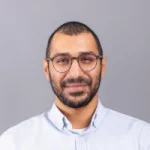
Abdulla Al Akram
Abdulla is a digital coach and ICT teacher at IBN Khuldoon National School. He was took on the role of UNESCO Project Elementary Liaison, facilitating communication between the middle/high school and the elementary school programs. He also launched an eWaste photography competition and encouraged students in the elementary school to contribute to the collection of eWaste.
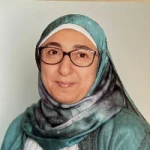
Huda Labib
With 11 years of experience, Huda teaches social studies to grades 7 and 8 at IBN Khuldoon National School. As the UNESCO School Project Coordinator since 2015, she leads both the Middle School’s Go Green Club and the High School’s UNESCO team. Their impactful ‘Aqua Week’ initiative, organized by the Go Green Club, raised awareness of plastic’s harm to marine life. This led to Huda’s selection by UNESCO to represent Bahrain and the Arab region at the 2020 ‘Trash Hack’ conference, highlighting our school’s efforts. Currently, she is working with her students from both clubs on the ‘Forgotten Fortune’ Campaign which aims to create awareness in the local community about the dangers of e-waste.
Usefull links related to the Solution
Overview
Huda and Abdulla are teachers at Ibn Khuldoon National School in Bahrain. When their school was chosen to take part in the UNESCO ‘Litter Less’ Campaign they took on the challenge with their students and successfully collected 1.6 tonnes of electronic waste (e-waste). This was achieved through developing an awareness campaign and through forming relationships with public and private institutions in the waste management sector, from across the country.
Theory of Change
The team decided to focus on the issue of e-waste as this type of waste had been increasing year on year and most ended up in landfill sites. The students also realised that e-waste was an environmental issue but felt powerless to overcome the scale of the problem. The students, with support from Huda and Abdulla and the school leadership team; developed a selection of interventions which influenced e-waste disposal practices in their school and further afield. This demonstrated to the students the positive impact their actions could have on a climate change issue.
Approach and Actions
Huda and her students carried out a fact-finding mission involving visits to institutions related to e-waste disposal including the Bahrain Supreme Council for the Environment, a recycling company and the Minister of Oil and the Environment. The students then developed the ‘Forgotten Fortunes’ campaign- the name refers to the fact that e-waste is often valuable but also overlooked. Using the knowledge gained from their fact-finding mission they started a campaign to promote the 3 R’s to decrease e-waste – Reduce, Reuse and Recycle.
The campaign initially focused on raising awareness among the students in the school – through lectures and competitions including a photography competition organised by Abdulla – but quickly moved on to spreading awareness among the wider population. This extension of the campaign occurred through an online series of videos published on the school UNESCO team’s Instagram. This was carried out over three months- the videos spotlighted the harmful effects of e-waste and showed practical solutions to reduce and recycle it. The school also became a hub for disseminating e-waste information, students from other schools in the area were invited to the school to join educational events on e-waste management. The team also took part in the Bahrain Environmental Schools Summit which allowed them to share their experiences and achievements with other schools. A relationship with the Bahrain and Kuwait Bank was also established which enabled the students to start an e-waste collection competition within this multinational corporation.
Impact
The biggest impact that the project has achieved is that the students now realise that creating awareness and education are essential to changing people’s behaviour towards environmental responsibility. The students witnessed the positive effect an educational campaign can have by collecting 1.6 tons of e-waste. Students also became aware of the serious consequences of e-waste on the environment. This was shown by their interest in collecting e-waste in their homes and bringing it to the school collection points to be recycled. The hope is that in the longer term, this understanding will lead to a change in culture related to e-waste among the students and across the wider community. It is also hoped that in future there will be opportunities to gain further sponsorship from public and private organisations to help raise more awareness of the issue of e-waste through a larger-scale campaign.
